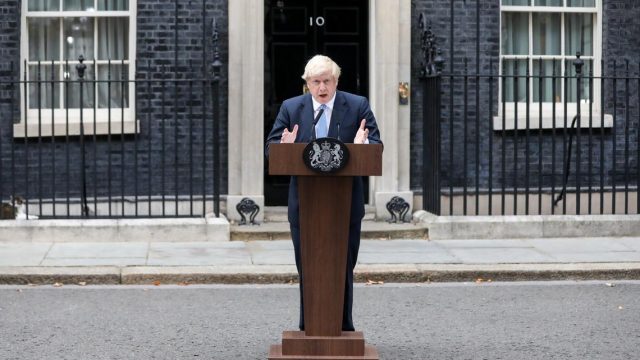How Far Must We Oblige the Will of the People?

Like many Americans, I imagine, I’m watching the wrangling over Brexit with a mixture of mirth and confusion.
Mirth because our British friends are engaged in a political food fight which makes the tumult of Trump-era America seem downright pacific.
Confusion because, being Americans, we are not well versed in the peculiarities of the United Kingdom’s parliamentary procedure. There was a vote, and parliament has been kicking this around for a while, at some point the Queen weighed in, and now there’s going to be an election?
I tend to agree with Daniel Hannan in that implementing Brexit seems inevitable, and the squabbling now is mostly over the details.
I support Brexit – I’m a federalist, as a general principle I believe in distributing the power of government, not consolidating it – but more interesting to me than the question of the U.K. leaving the European Union is how the vote which started all of this is being treated.
More than three years ago, in June of 2016, nearly 52 percent of UK citizens voted to leave the EU. More than 48 percent voted to remain.
As a matter of governing, that vote is a mandate for the UK government to exit the EU.
As a practical matter of politics and society, the government is stuck trying to implement a hugely polarizing policy over the objections of roughly half of the country.
That’s interesting, isn’t it? Brexit isn’t some philosophical debate. If implemented there are all sorts of practical ramification from economic considerations – many are warning of shortages on things like food and medicine in the absence of trade agreements with the EU – to borders. Northern Ireland is a part of the United Kingdom. The rest of Ireland is an independent nation and a member of the EU. While border security between north and south has been eased in the years since The Troubles, Brexit could bring back the need for a secure border with checkpoints and guards.
Yet none of this would be happening if about 2 percent of UK voters three years had said no to Brexit instead of yes.
Democratic systems of government are premised on the idea that the majority rules. By that standard, since a majority voted for Brexit then Brexit should happen.
But the vote was three years ago. Is Brexit still the will of the people? If factions in Parliament, which is also elected by the people, manage to scuttle Brexit is that an affront to the will of the people?
How far must we oblige that will?
A poll, be it an opinion survey or an election, is just a snapshot of public attitudes at a given moment. The reality is that public sentiment is not static. It shifts.
But what do you do? Treat a three-year-old vote as an eternal mandate? Hold another election, and probably get a similarly divided outcome?
Ironically, the divide in the U.K. over Brexit kind of illustrates the argument for Brexit and opposition to political consolidation generally.
I’ve long argued that one of the contributing factors to America’s present state of intense polarization is our steady abandonment of federalism. Our federal government has grown massively in the 20th and early 21st centuries and is far more involved in local policy than our nation’s founders ever intended. But it’s hard to create a lot of satisfying, one-size-fits-all policies for a nation with more than 327 million ethnically, culturally, geographically diverse people.
Whether it’s America or Europe, I think we’re all better served by smaller polities which allow for more diversity in both representation and policy. Here in the U.S., the federal government ought to be doing less, and the states ought to be doing more, thus allowing more flexibility for Americans to migrate toward the states/policies of their liking.
Sadly, it is human nature to want more than to live a certain way. We also want to make others live the way we think they ought to. This desire drives political consolidation as we push to make others live under our preferred regime.




